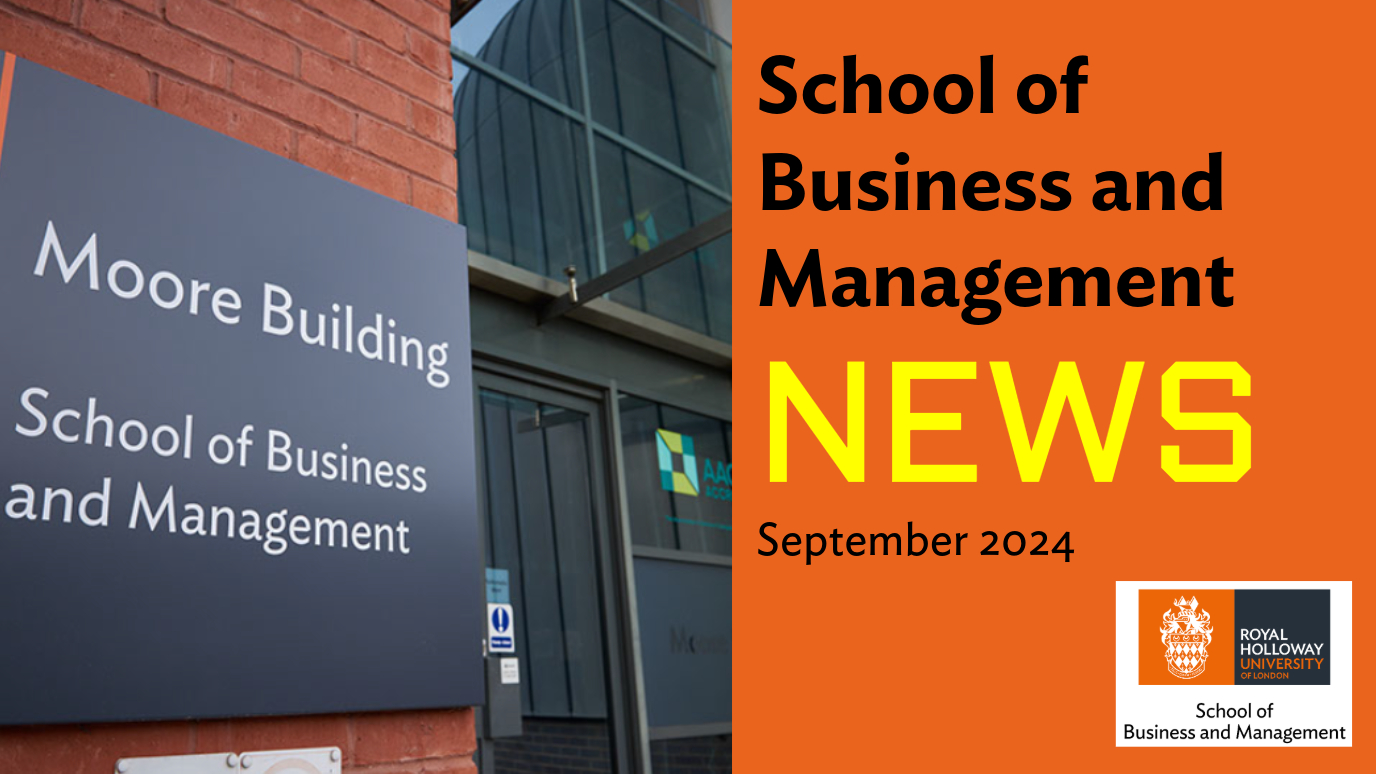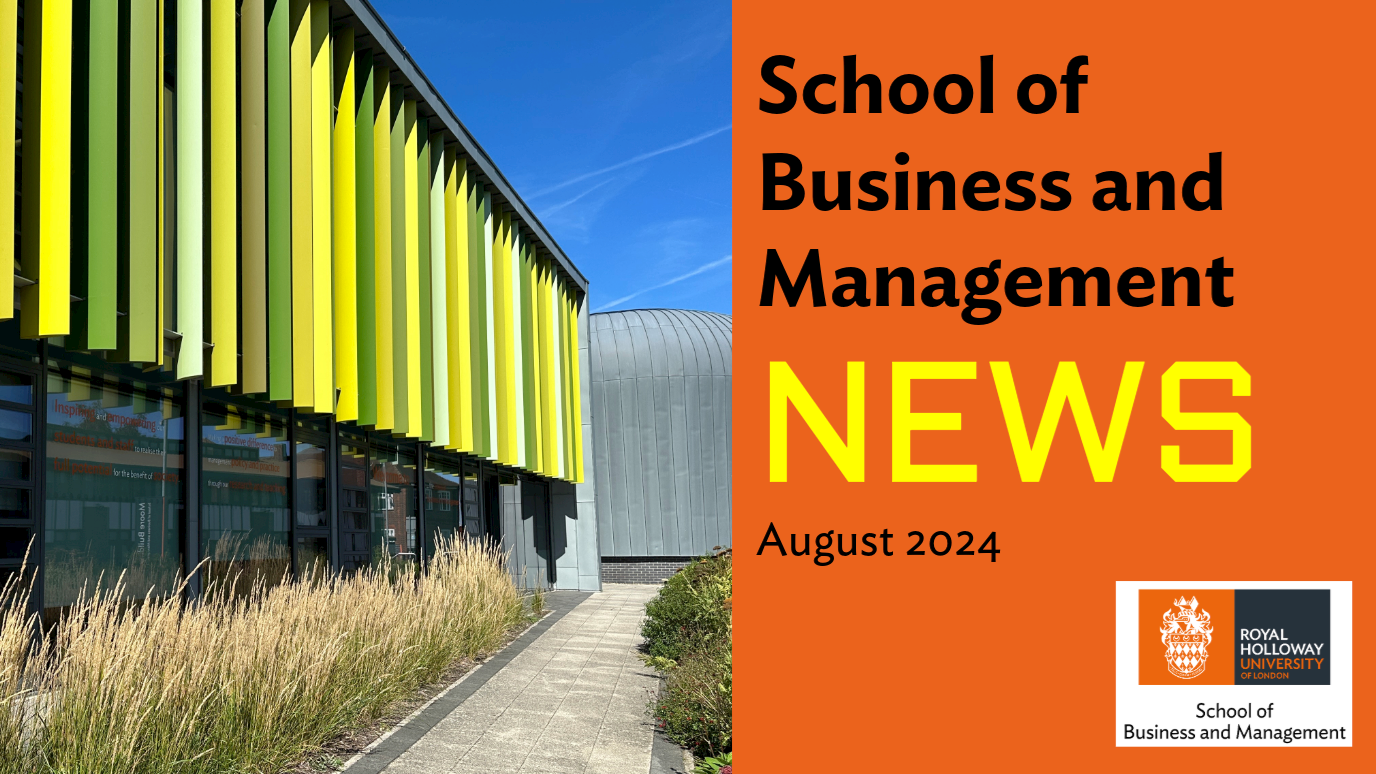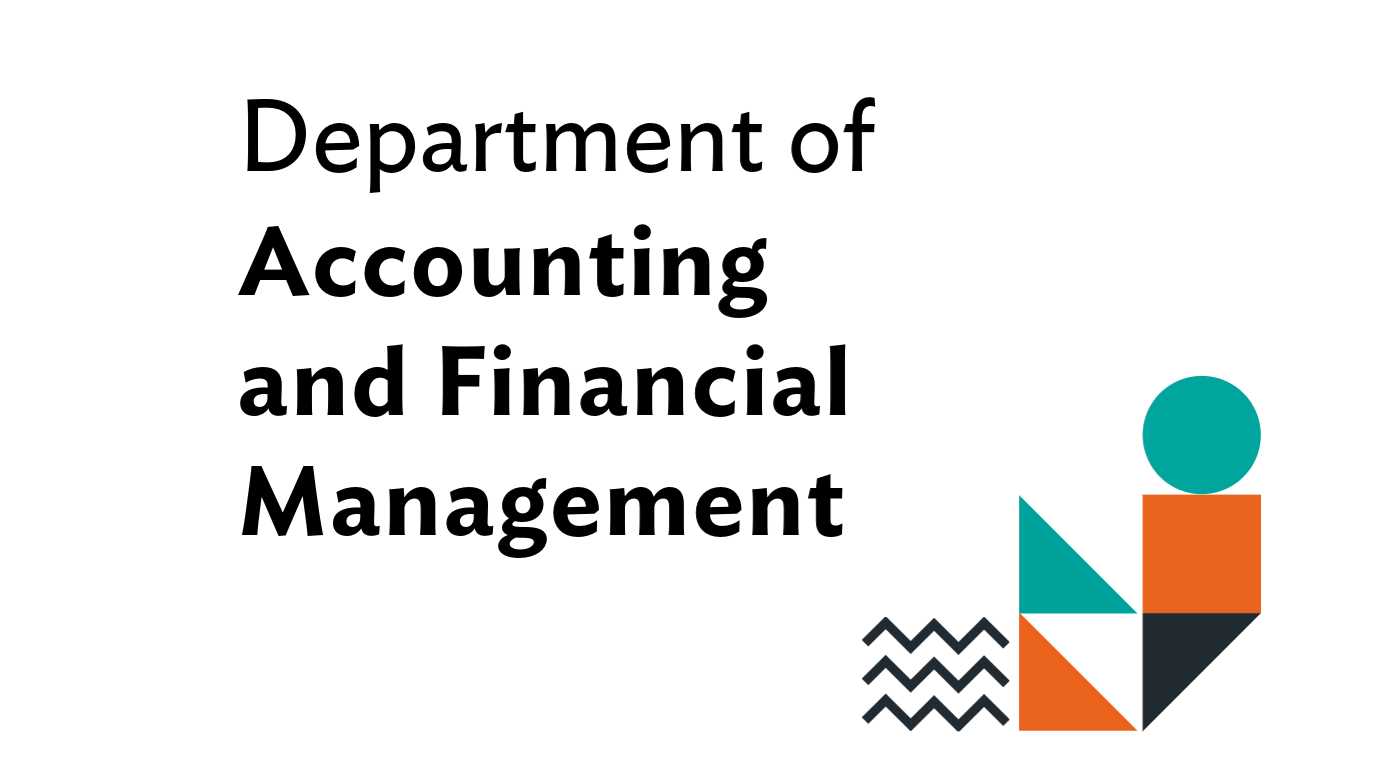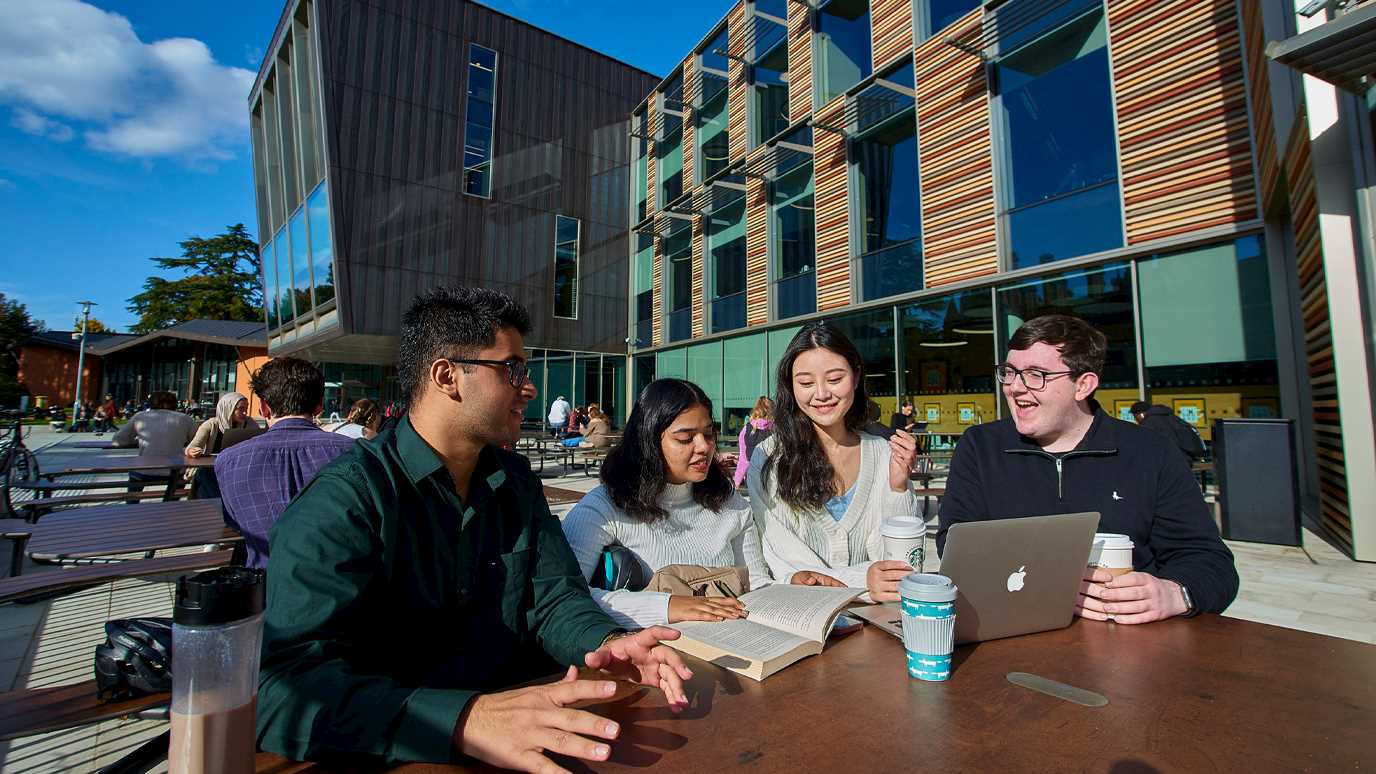Business scholar and inclusivity campaigner Anica Zeyen is a game-changer. Her creative research methods and breadth of work on disability, work and inclusion is paving the way for a more equitable world.
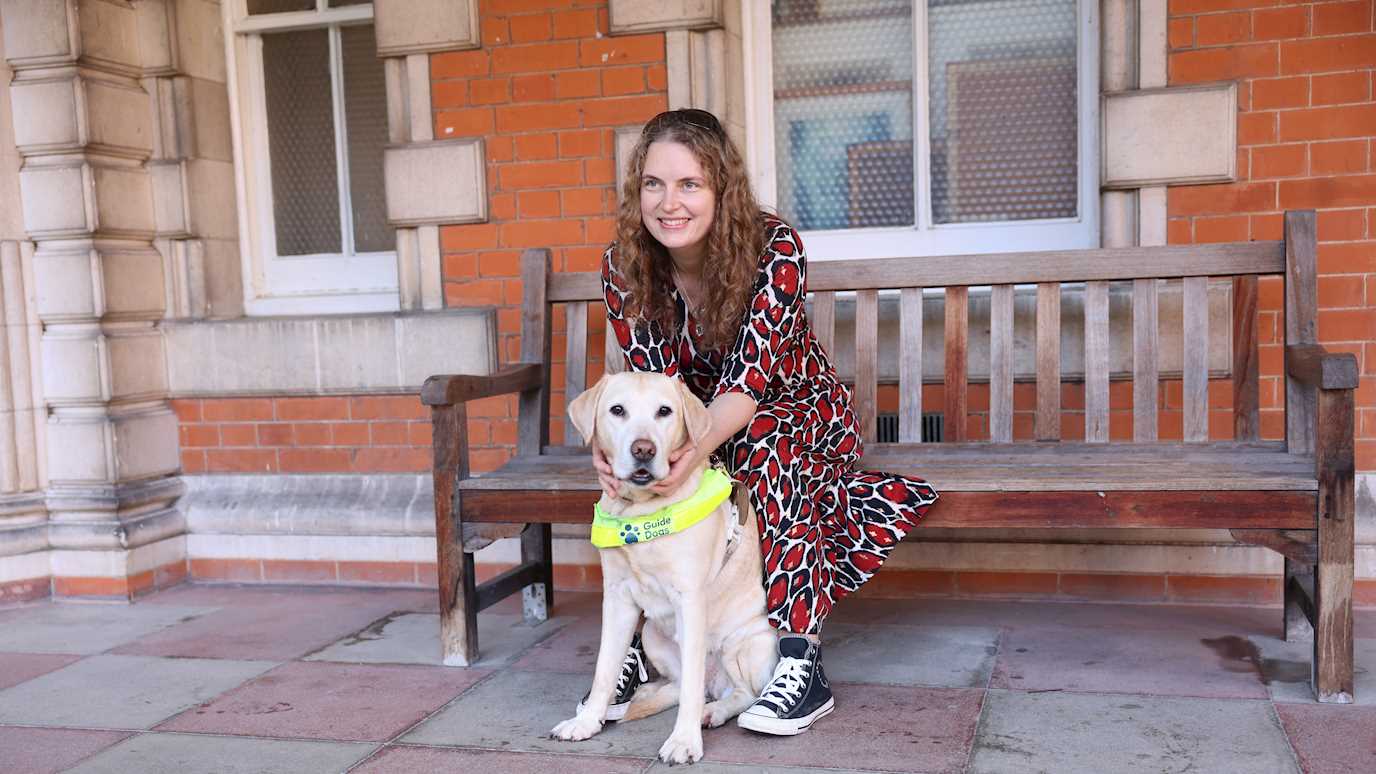
Tell us a bit about your roles as Vice Dean for Equality, Diversity & Inclusion (EDI) and Professor of Entrepreneurship and Inclusion.
I have been Vice Dean for EDI for a year and a half. I've always worked in EDI at Royal Holloway in some capacity, so it was a great opportunity to cover other areas in addition to disability, such as gender, race, LGBTQ+ and socioeconomic diversity.
My PhD was on social entrepreneurship organisations but over time I began to shift my research focus to entrepreneurship, disability and inclusion and the many intersectional considerations, from sexism to racism and heterosexualism. I am disabled myself and have regularly volunteered in this area so was exposed to ableism and various issues and soon realised I could make a real impact.
Through my research at the School of Business and Management, I became more deeply aware of different inclusion requirements. Not merely as a classroom topic, but in the way I deliver and present my teaching and research and how to cater to diverse individuals, backgrounds and learning needs.
Inclusion is an area I’m very passionate about. Everyone should have the opportunity to succeed and that informs everything I do, from my research and teaching to staff development.
Your research focuses on enhancing economic participation and inclusion for people with disabilities. How do you define that?
Economic participation means a lot of things, so I keep it deliberately broad. It's about being able to earn a living, whether that’s permanent employment, freelance or entrepreneurship but also being a full member of the economy. It means being able to consume the products and services you want and being allowed to enjoy everything the economy has to offer – like volunteering, or joining a gym, without inaccessibility, prejudice or discrimination.
Societal inclusion for disabled people means anyone who has any kind of disability can do the things they want to do without access refusal or facing inaccessibility. They can access any restaurant of their choice; take a train without anxiety; go swimming without a carer; or not be refused access with an assistance dog. It’s about being able to engage and live fully without additional planning because everything is designed for inclusion, and disability is considered in every service and product.
Disability inclusion is vital to the economy too, with an estimated 16 million disabled people in the UK. The combined spending power of households with at least one disabled person—known as the purple pound—is worth nearly £274 billion per year to the UK economy alone.
You’ve won several social purpose-led grants. What project are you most proud of?
I'm very proud of a two-year study we did in 2020-2022 on the lived experiences of disabled employees at work during the Covid-19 pandemic called Disabled at Work. We wanted to understand the impact of return-to-work policies and if remote working truly offered more opportunities. It was a small British Academy Covid-19 Special Research Grant, but it had a large impact.
We followed 24 disabled individuals, and it was innovative and rewarding in many ways. From the ways we collected data using personal diaries, to how participants engaged with us. Some participants handwrote their responses, while others chose to type, draw, or write a poem about their experiences. Participants were also free to submit these diaries at different times and frequencies.
To amplify our research and the voices of the disabled community, we produced a documentary called Invisible to showcase some of these lived experiences.
Our project helped place disability as an urgent matter. Despite popular opinion, our research also found that working from home policies led to no increase in opportunities for people with disabilities post-pandemic. It also proved that you can’t always use the same uniform research methods to collect data.
What are you working on now?
My current research aims to make politics more representative of disabled people and their needs. It was born out of the fact that only 1% of politicians in Europe are disabled, so key decisions that influence disabled people are often made by people without lived experience.
Our research aims to understand the barriers to entering politics, the impact of technology and the opportunities as many disabled people who have poor experiences in politics often turn to activism and stay there.
Our ongoing study interviews disabled activists who chose not to enter politics, as well as aspiring, former and current politicians of all levels. We’re conducting it in France and the UK, working with business schools and universities in both countries.
We’re still collecting data, but our studies already show that discrimination, cyber bullying, and harassment is more prominent among women in politics and activism across all parties. While many people with disabilities who have worked in elected offices often opt to step down after one term because of the strain it puts on their health and the underlying medical side of their disability.
To share our research with the public and encourage disabled people to enter politics, we’re looking at producing our findings as cartoons and comic strips.
I love playing around with mediums and thinking about new ways to help people engage with our research, from art exhibitions to film.
Interested in learning more about our research?
Contact us to find out more about research collaboration opportunities with Royal Holloway:
Business and industry or email knowledgeexchange@royalholloway.ac.uk
Research or email researchservices@royalholloway.ac.uk










